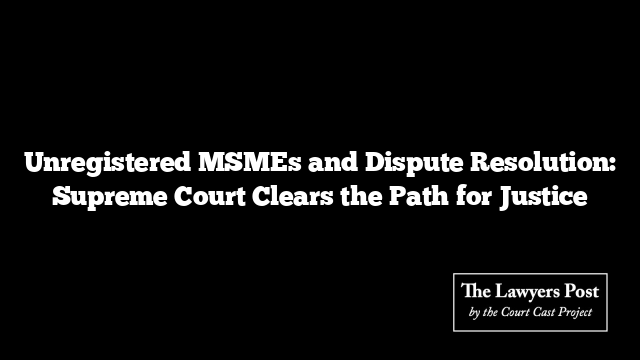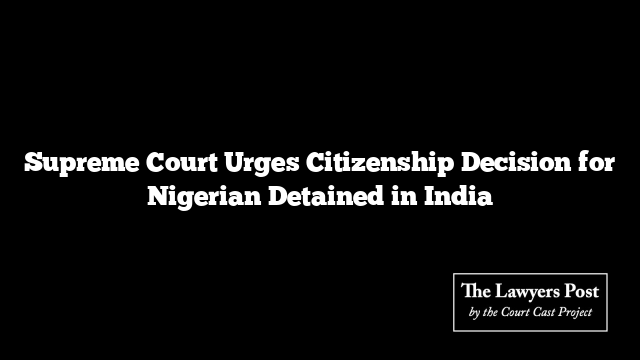In a landmark observation, the Supreme Court has clarified that unregistered Micro, Small, and Medium Enterprises (MSMEs) can invoke the payment dispute resolution mechanism under Section 18 of the Micro, Small, and Medium Enterprises Development Act, 2006 (MSMED Act). This decision marks a significant departure from earlier interpretations requiring prior registration under Section 8 of the Act.
Rejecting the notion that only registered entities at the time of contract formation are eligible for statutory remedies, the Court emphasized that Section 18’s language—referring to “any party to a dispute”—is intentionally inclusive, ensuring broader access to justice.
The case revolved around whether registration under Section 8, which facilitates statutory benefits and protections, is a prerequisite for accessing Section 18’s dispute resolution forum. This forum enables MSMEs to approach the Micro and Small Enterprises Facilitation Council (MSEFC) for conciliation and arbitration in payment disputes.
Highlighting the broader purpose of the legislation, the Court stated that remedies provided under Section 18 are statutory, not contractual, and must remain unrestricted to ensure equitable access. “Access to justice is a cornerstone of statutory remedies, and interpreting these provisions narrowly would undermine this principle,” the bench remarked.
The ruling diverges from earlier judgments in the Silpi Industries and Mahakali Foods cases, where the Court required MSME registration prior to contract execution to claim statutory benefits. Noting the distinct legal questions in those cases, the bench referred the present matter to a larger bench for an authoritative decision, emphasizing the need for clarity and legal certainty.
This development underscores a pivotal shift toward ensuring that even unregistered MSMEs can benefit from the MSMED Act’s protective framework. By expanding the scope of access to dispute resolution, the Court has reaffirmed its commitment to fostering inclusivity and fairness in commercial relationships.
The next steps will involve a larger bench’s deliberation to solidify the interpretative framework for such cases, providing greater certainty for all stakeholders involved.





